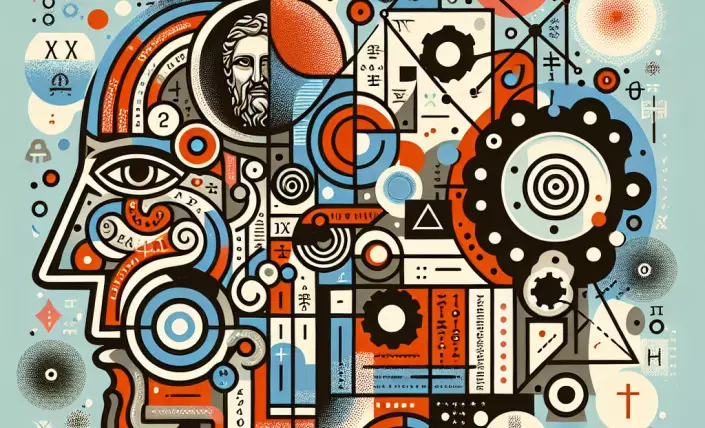In a world obsessed with order, structure, and predictability, the notion of embracing chaos may seem counterintuitive, if not outright reckless. Yet, Friedrich Nietzsche, a philosopher known for challenging the very foundations of Western thought, offers a compelling case for why chaos might be not only necessary but essential for a more authentic existence. Nietzsche’s philosophical musings on chaos, encapsulated in his famous dictum, “one must still have chaos in oneself to be able to give birth to a dancing star,” invite us to reconsider our conventional aversion to disorder and to explore the potential it holds for personal and existential transformation.
Nietzsche’s perspective on chaos is deeply intertwined with his critique of traditional values and the moral systems that have dominated Western thought. For Nietzsche, these systems often impose artificial constraints on human experience, stifling creativity and spontaneity in favor of conformity and obedience. This critique is not a mere call for anarchic abandon but rather an invitation to embrace the inherent unpredictability and flux of life as a source of strength and creativity. Nietzsche posits that it is within the crucible of chaos that individuals have the opportunity to forge their own values and paths, free from the shackles of imposed morality. By confronting the chaos within and without, one can achieve a higher state of being, characterized by what Nietzsche refers to as the Übermensch, or Overman, an individual who creates their own destiny and meaning.
The concept of the Übermensch is crucial in understanding Nietzsche’s advocacy for chaos. The Übermensch represents the ideal of self-overcoming, a process that involves the continuous reevaluation and transformation of one’s values and beliefs. This process is inherently chaotic, as it requires the individual to constantly question and deconstruct established norms and truths. It is a journey of perpetual becoming, where the individual must navigate the tumultuous waters of doubt and uncertainty. However, it is precisely through this engagement with chaos that true freedom and authenticity are realized. By embracing chaos, individuals can break free from the deterministic constraints of societal norms and tap into the wellspring of creativity and potential that lies within. In this light, chaos is not a destructive force but a catalyst for personal growth and evolution.
Moreover, Nietzsche’s embrace of chaos extends beyond the individual to encompass the broader existential condition of humanity. He challenges us to confront the “abyss” of nihilism, a state of existential void resulting from the collapse of traditional values and the realization that life may lack inherent meaning. This confrontation with nihilism is a chaotic experience, as it dismantles the comfortable certainties that underpin our existence. Yet, Nietzsche argues that this very confrontation is an opportunity for liberation. By acknowledging the chaotic nature of existence, we are freed from the illusion of preordained purpose and can instead create our own meaning and values. In this sense, chaos becomes a canvas for existential creativity, where individuals are empowered to craft lives of significance and purpose.
In conclusion, Nietzsche’s philosophy of chaos invites us to reconsider our relationship with disorder and uncertainty. Instead of fearing chaos as a threat to stability and order, we are encouraged to embrace it as a vital component of the human experience. Chaos, in Nietzsche’s view, is not merely an external force to be tamed or controlled but an integral aspect of our inner lives that can inspire creativity, growth, and authenticity. By engaging with chaos, we open ourselves to the possibility of transformation, forging new paths and values in the process. Ultimately, Nietzsche’s exploration of chaos challenges us to live more fully and authentically, to dance with the uncertainties of existence, and to embrace the creative potential that lies within the tumultuous ebb and flow of life.










